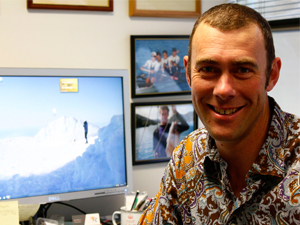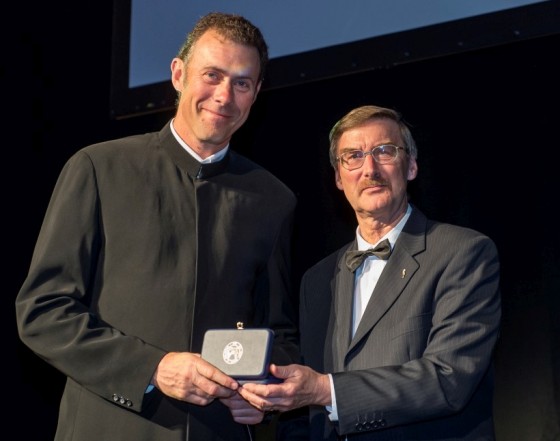News
Published 26 November 20142014 Pickering Medal: Implantable wireless devices for monitoring the body

Physiologist and bioengineer Professor Simon Malpas has been awarded the Pickering Medal for his development and commercialisation of implantable wireless sensors that monitor physiological processes in the body.
“Professor Simon Malpas is a prominent international physiologist and bioengineer who has been at the forefront of the development of wireless sensors for physiological monitoring. He has a remarkable record of scientific entrepreneurship,” the medal selection panel said.
By utilising advances in telecommunications, battery technology and miniature sensors, these devices can measure a range of indices including blood pressure, lung function, heart electrical activity (ECG), brain activity (EEG), intracranial pressure, sympathetic nerve activity for the body’s flight‐or‐fight stress response, oxygen levels in tissue and body temperature. The use of this technology has advanced fundamental research in the areas of high blood pressure, heart failure and injury to the brain and spinal cord.
These implantable devices have been commercialised through spin‐out companies which Professor Malpas has led (Telemetry Research Ltd merged with Millar Instruments to form Millar Inc in 2012). These devices are now in use in 35 countries and all the world’s major pharmaceutical companies in their safety and toxicology testing programmes. Revenue is approximately NZD$20 million annually. Professor Malpas leads the scientific programme for the company for both clinical and life science product development. He is Professor of Physiology at the University of Auckland and collaborates with the Auckland Bioengineering Institute.
The ability to continuously record physiological parameters is extremely useful in drug testing and basic research through improved efficiency. This technology has been recognised for reducing the number of animals used in medical research, receiving a 3Rs award (replacement, reduction, refinement) by the National Animal Ethics Advisory Committee in 2012.

The ability to power these devices wirelessly though a technology called Transcutaneous Energy Transfer reduces the risk of infection by removing the need for implanting a cable for powering a device. This has been particularly beneficial for patients using an artificial heart pump.
The technology platform is currently allowing Professor Malpas’s team to develop a system for improving the lives of people with hydrocephalus, also known as ‘water on the brain’, who experience a build up of cerebrospinal fluid.
“I am humbled and honoured by the award,” Professor Malpas said.
“I see this as recognition for the hard work over many years by a very talented team of people. I am very keen to see the medical device community develop in New Zealand and hopefully our technology can be part of this journey.”
Pickering Medal
For excellence and innovation in the practical application of technology.
Citation
To Simon Malpas for his contribution to the development of wireless sensors for physiological monitoring.
